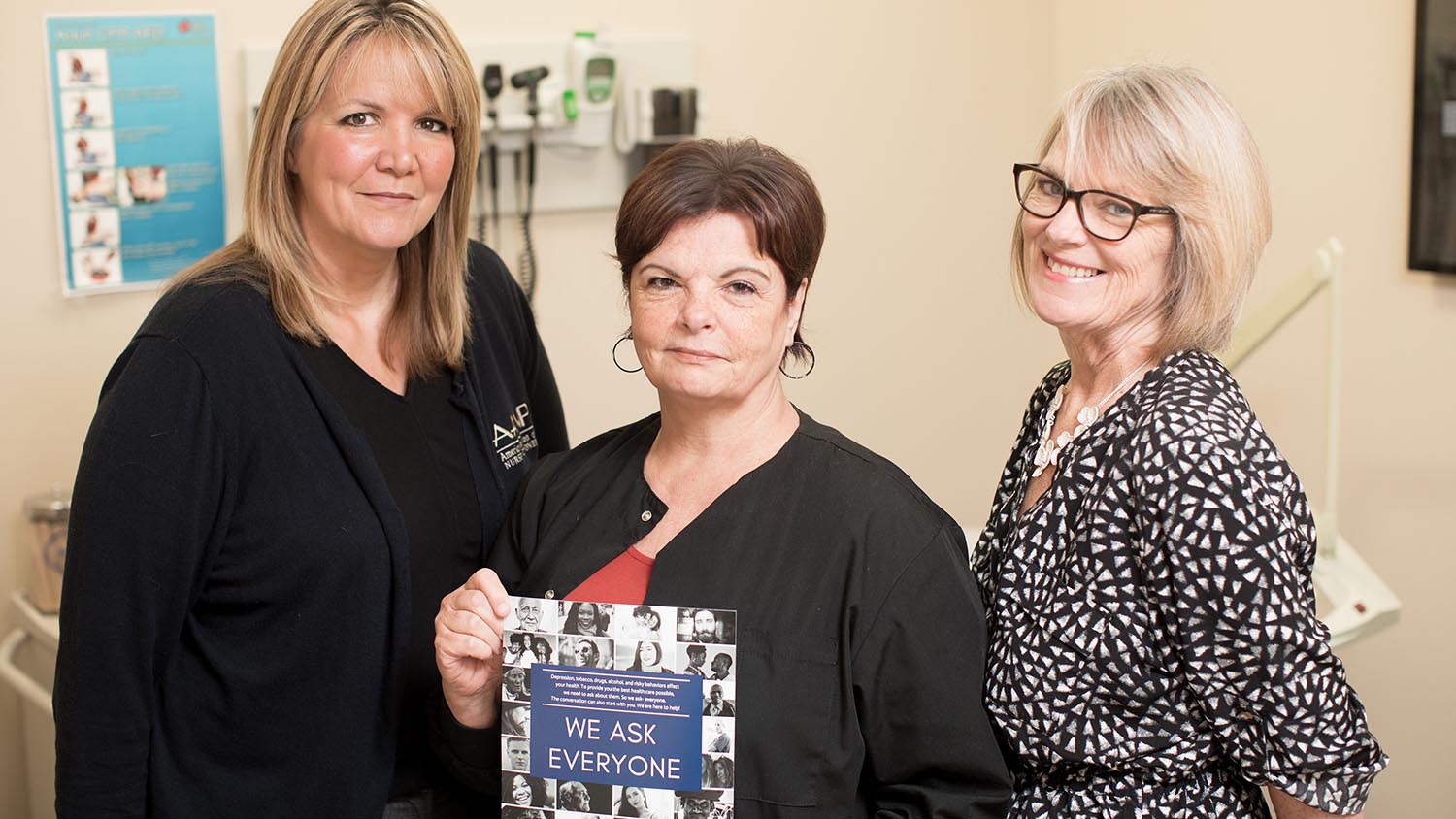Cal U is a pilot location for a program that screens students for risky behaviors and provides appropriate support.

Tina Pierce (left), nurse practitioner; Debra Anderson, nurse supervisor; and Donna George, coordinator for the Pennsylvania’s State System of Higher Education’s Alcohol and Other Drugs Coalition.
Cal U is leading the way in prioritizing the health of students.
The University is a pilot location for the Screening, Brief Intervention and Referral to Treatment program, or SBIRT. The voluntary program is used to identify, reduce and prevent problematic use of drugs and alcohol.
Professionals at Cal U’s Wellness Center use the model to assess students for risky behaviors, provide feedback and advice, and refer them for additional treatment if necessary.
The project is funded through a $175,000 grant from the Pennsylvania Commission on Crime and Delinquency. Grant partners are Pennsylvania’s State System of Higher Education and the University of Pittsburgh’s Program Evaluation and Research Unit, which is providing technical assistance.
“SBIRT is a very systematic way to make sure every student is offered the same universal screening and given the opportunity, if they qualify based on that screening, for a brief intervention,” said Donna George, a Cal U employee and coordinator for the Pennsylvania’s State System of Higher Education’s Alcohol and Other Drugs Coalition.
The coalition implements strategies to reduce dangerous drinking and drug abuse on all 14 System campuses.
“We’ve had SBIRT only a short time, but there’s plenty of research that shows that it does produce positive outcomes,” George said.
“The implementation of the SBIRT program has proven to be a positive and helpful addition to the assessment process of our students,” said Debra Anderson, Cal U’s nurse supervisor.
The Alcohol and Other Drugs Coalition is proposing that SBIRT become the standard prevention program for State System universities. Kutztown University will start a program this fall.
Each site has appointed “champions” for the initiative, with Anderson and nurse practitioner Tina Pierce serving in that capacity at Cal U.
“SBIRT gives our nurses and clinicians another tool that they can be confident is effective and works,” George said. “What this does is give students information — but more importantly an opportunity — through motivational interviewing to become educated and challenged to change, reflect about their use and get feedback.”
Cal U’s representatives on the State System’s Alcohol and Other Drugs coalition are Rachel Michaels, AOD education specialist; Jim Pflugh, associate dean for student conduct; and Joy Helsel, director for fraternity and sorority life.
Dr. Nancy Pinardi, vice president for Student Affairs, serves as the coalition’s vice chair.
George praised Cal U for being a SBIRT pilot site.
“It’s just a fact that a lot of young adults have substance use disorders and many feared that by using SBIRT we’re opening that can of worms but frankly it’s already open,” George said.
“If you are able to prevent and catch things early on and give students the opportunity to change behaviors before it gets too problematic, they will hopefully improve their health, stay in school and succeed.”
